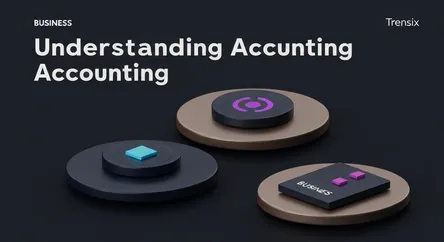Business
Understanding Accounting

Learn the essentials of accounting, the process of recording, summarizing, and reporting financial transactions to track business performance and health.
What is it?
Accounting is often called the "language of business." It is the methodical process of recording, summarizing, and reporting a company's financial transactions. This involves tracking all income, expenses, assets, and liabilities to produce accurate financial statements, such as the income statement, balance sheet, and cash flow statement. These reports provide a clear snapshot of a company's financial health and performance, enabling informed decision-making. It's a crucial function for any organization, ensuring compliance and operational transparency.
Why is it trending?
The accounting field is evolving rapidly with technology. The widespread adoption of cloud-based software like QuickBooks and Xero has made financial data more accessible in real-time. Automation and AI are now handling routine tasks, shifting the accountant's role towards strategic analysis and advisory. There is also a growing demand for data analytics skills to uncover deeper business insights and for forensic accounting to combat sophisticated financial fraud. This digital transformation is making the field more dynamic and data-driven than ever.
How does it affect people?
Accounting impacts nearly everyone. For business owners, it's essential for budgeting, securing loans, and strategic planning. Investors rely on financial statements to assess a company's value before investing. For employees, proper accounting ensures accurate payroll and indicates a company's stability. On a personal level, understanding basic accounting principles helps individuals with budgeting, managing personal debt, and filing taxes. It empowers people to make smarter financial decisions in both their professional and personal lives, fostering financial literacy and security.